|
The AACP Newsletter Asian American Curriculum Project, Inc. - Books for All Ages |
|||
|
|
Up Coming EventsHere are some events that AACP will soon be attending. Invite us to your events.
Give Us Your FeedbackPlease feel free to send us your reviews, comments, and book suggestions. You can contact us at -aacpinc@asianamericanbooks.com |
Editor's MessageHello Everyone,This newsletter is pretty long. So I'll be brief. Thanks Sophie, Florence, and Philip. Happy Lunar New Year Everyone.
Leonard Chan The Passing of Sadao "Sid" Kinoshita
Sid was one of the Japanese American Curriculum Project's (original name for AACP) charter board members when we organized in February of 1970. He was a teacher in the San Jose Union School District. He had an interest in our original mission of creating curriculum from the point of view of the Japanese Americans. He dedicated all of his energies to helping us with the writing of our first book, Japanese Americans: The Untold Story. For us it meant burning the midnight oil to meet publisher's deadlines. |
||||||||||||||||||||||||||||||||||||||||||
|
McCarthyism to Terrorism Looking At Current Abuses on the Asian American Community (Part II) By Leonard D. Chan When this article started out in October of 2005 we had hoped to continue the series with a report on the Lodi California Muslim South Asian Community and how it was handling the arrest and deportation of several of its members as a result of initial terrorism charges. Instead of concentrating on this one report, we've decided to list a few example cases of recent abuses and link to articles with more details. What ties these cases together are individuals that live in fear and people being tagged as guilty by association. Although we cannot vouch for the innocence of every person in these stories, under the American system of justice we must assume that they are innocent until proven guilty in a court of law. This February 19, 2006 will mark the 64th anniversary of Executive Order 9066. Order 9066 led to the internment without due process of over 110,000 Americans of Japanese descent. Although the following cases do not approach the scale of past atrocities, we hope that on this anniversary you please read these articles and not turn a blind eye to what is happening to our neighbors. The first step to preventing atrocities like the World War II Internment and McCarthy era witch-hunts is by staying informed. Do not bury your heads in the ground and assume these things can never happen to you. Ignorance only makes it more likely that it will. |
Lodi Terrorist Story and the Effects on the Community
Dr. Nadeem Hassan Accused of Being a Member of an Organization With Questionable Ties to Terrorism
Munir Mario Rashed - Teen Questioned by the FBI
George Mason Student Busted for Anti-Recruiting
Kurdish American Ibrahim Parlak Accused of being a Terrorist
Victim of the No-Fly List To read more articles of McCarthy like abuses go to McCarthyism Watch. |
|
The following are some excerpts from an essay written by David Cole, Professor of Law Georgetown University Law Center Please read the annotated full text at The Harvard Civil Rights-Civil Liberties Law Review, Vol. 38, No. 1, Page 1, Winter 2003 Copyright © 2003 by the President and Fellows of Harvard College |
|
The New McCarthyism: Repeating History in the War on Terrorism …The Cold War did most of its damage by targeting people not for their speech, but for their associations. Similarly, while many argue that we have avoided the mistakes of the past in this crisis, it would be more accurate to say that we have adapted the mistakes of the past, substituting new forms of political repression for old ones. Today's war on terrorism has already demonstrated our government's remarkable ability to evolve its tactics in ways that allow it simultaneously to repeat history and to insist that it is not repeating history. We have not, it is true, interned people solely for their race, but we have detained approximately two thousand people, mostly through administrative rather than criminal procedures, and largely because of their ethnic identity.[4] In addition, we have subjected Arab and Muslim noncitizens to discriminatory deportation, registration, fingerprinting, visa processing, and interviews based on little more than their country of origin.[5] We have not, it is true, made it a crime to be a member of a terrorist group, but we have made guilt by association the linchpin of the war's strategy, penalizing people under criminal and immigration laws for providing "material support" to politically selected "terrorist" groups, without regard to whether an individual's support was intended to further or in fact furthered any terrorist activity. In short, just as we did in the McCarthy era, we have offset the decline of traditional forms of repression with the development of new forms of repression. A historical comparison reveals not so much a repudiation as an evolution of political repression. I do not mean to suggest that the Cold War and today's war on terrorism are in all respects identical. History never repeats itself in that literal a sense. For one thing, fear of ideas played a much larger role in the Cold War. Our concerns today stem more from the fear of catastrophic violence made possible by weapons of mass destruction and an enemy that appears immune to deterrence. We who witnessed the World Trade Center towers burn and fall will never forget the horrors of that day. But it is too easy in hindsight to minimize the threat that the nation felt during the Cold War. Then, we were threatened not by a terrorist gang of a few thousand men but by the second largest superpower in the world. Now we speculate about whether the enemy has access to weapons of mass destruction. Then, we knew that there were thousands of nuclear bombs trained on our cities. Many of us have nightmares of terrorist attacks today, but at least as many had nightmares then of a nuclear Armageddon.[6] In short, both periods unquestionably were times of mass fear. As John Lord O'Brian argued in the midst of the Cold War, great fear inevitably produces calls for "preventive" law enforcement; we seek not merely to punish perpetrators after the fact but to prevent the next disaster from occurring.[7] Attorney General John Ashcroft has proudly proclaimed the "preventive" features of his campaign against terrorism.[8] But preventive justice and criminal law are not an easy mix; the fact that the criminal sanction requires the commission of a crime and insists on a strong presumption of innocence until guilt is proven beyond a reasonable doubt makes the criminal law an unwieldy mechanism for prevention. Prevention is not of course impossible to achieve through the criminal process. In theory, deterrence operates to prevent crimes, although deterrence is not very realistic when perpetrators are willing to sacrifice their own lives. And the crimes of conspiracy and attempts mean that we do not have to wait for the bomb to explode before arresting individuals and invoking criminal sanctions. Sheikh Omar Abdel Rahman is currently serving multiple life sentences for his role in planning to bomb the tunnels and bridges around Manhattan-the bombs never went off, yet we were able to prosecute the planners on conspiracy charges and incarcerate them for the rest of their lives.[9] Still, the criminal process, with its rights to counsel, confrontation of adverse witnesses, public trial, and the presumption of innocence, undoubtedly makes preventive law enforcement more difficult. Accordingly, in times of fear, government often looks for ways to engage in prevention without being subject to the rigors of the criminal process. This Essay will argue that the government has invoked two methods in particular in virtually every time of fear. The first, discussed in Part I, involves a substantive expansion of the terms of responsibility. Authorities target individuals not for what they do or have done but based on predictions about what they might do. These predictions often rely on the individuals' skin color, nationality, or political and religious associations. The second method, the subject of Part II, is procedural-the government invokes administrative |
processes to control, precisely so that it can avoid the guarantees associated with the criminal process. In hindsight, these responses are virtually always considered mistakes. They invite excesses and abuses, as many innocents suffer without any evident gain in security. And most significantly, they compromise our most basic principles-commitments to equal treatment, political freedoms, individualized justice, and the rule of law. In the current war on terrorism, just as in prior times of fear, our government has adopted both substantive and procedural shortcuts toward the end of preventive justice. While it has altered slightly the tactics of prevention to avoid literally repeating history, in its basic approach the government today is replaying the mistakes of the past. All we have learned from history is how to mask the repetition, not how to avoid the mistakes. I. A Rose by Any Other Name-Subversive Speech, Guilt by Association, and Material Support II. The Course of Least Resistance-Substituting Administrative Process for Criminal Justice
Conclusion If the past is any guide, these mistakes will come at substantial cost to the targeted communities, as many innocent persons are swept up in the government's preventive net. But the mistakes may also undermine the war on terrorism itself. Professor Oren Gross has argued that the greatest threat that terrorists pose to a democratic state is not to its physical survival, but to what one might call the survival of principle.[119] He argues that what terrorists want is to provoke the state into (over)reacting in ways that violate its own principles, thereby undermining the state's legitimacy and creating sympathy for those allied with the terrorists.[120] If that is the case, it is all the more critical as we respond to the terrorist threat that we learn from our past mistakes and adhere to the principles that distinguish us from terrorists, for we may well be playing into Al Qaeda's hands. A little more than one year after the United States suffered one of the worst attacks on civilian life in modern history, one might expect to find widespread sympathy and support for the United States around the world. But instead, reports of anti-Americanism suggest that hostility to the United States has grown substantially since September 11.[121] No doubt much of this resentment is attributable to our unilateral foreign policy. But it likely is also due at least in part to the fact that as we insist that we are fighting a war for our freedom, we have denied those basic freedoms to many "suspicious" persons, the vast majority of whom are foreign nationals of Arab origin and/or Muslim faith. When we sacrifice the very principles that allegedly distinguish us from terrorists, and particularly when we do so in ways that appear to discriminate, we forfeit much of the war on terrorism's legitimacy. It is understandable that in times of fear, we defer to authority and close our eyes to the wrongs perpetrated in the name of our protection. But history reveals that blind faith is wholly unwarranted. Now more than ever it is critical that we remain true to our principles. There is nothing wrong with prevention when it consists of protecting potential targets of attack or stepping up security at borders, airports, and other vulnerable points. But when prevention translates into the punishment of individuals for what we suspect they may do, rather than for what they have done, it cannot be justified in a democratic society. The safeguards of the criminal process exist for a reason, and whenever we impose punishment or deprive persons of their liberty without adhering to these safeguards, we do more harm than good. The success of the war on terrorism, and indeed of our democratic experiment, requires us to reconsider the shortcuts that we have all too swiftly and predictably adopted. |
The following books are discounted for subscribers to our newsletter. The discounts on these books end March 5, 2006. | |
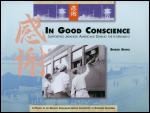
|
In Good Conscience
By Shizue Seigel |
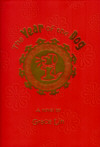
|
The Year of the DogBy Grace Lin2006, 134 pages, Hardback. This book chronicles a year of the life of a Taiwanese American girl named Pacy. It's the lunar year of the Dog and Pacy is told that it is a good year for friendship, family, and self-discovery. Follow along as Pacy's year of discovery leads her to a new friendship, learning about her family and culture, and her ultimate talent in life. This novel by picture book author Grace Lin will inspire young readers to go on their own journey of discovery in this current year of the Dog.
View Additional Information
|
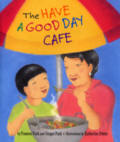
|
The Have a Good Day CafeBy Frances Park and Ginger ParkIllustrated by Katherine Potter 2005, 29 pages, Hardback. Mike's parents' food stand business takes a turn for the worse when competing vendors move to their corner of the park. Learn how Mike and his grandmother, who has come from Korea to live with his family, find delicious ways to help the family business. You'll learn the names for a plethora of Korean dishes from this story and its glossary.
View Additional Information
|
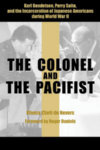
|
The Colonel and the Pacifist
By Klancy Clack de Nevers |
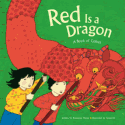
|
Red is a Dragon
By Roseanne Thong |
Copyright © 2006 by Asian American Curriculum Project, Inc. (a non-profit organization since 1970)
Visit our website at AsianAmericanBooks.com
To unsubscribe simply reply to this email and type "REMOVE" in the subject line.